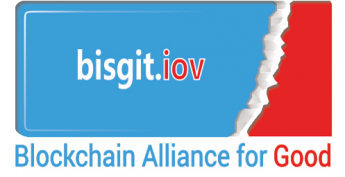Blockchain is a revolutionary computing concept that has taken the computing community by storm, but in every new technology, there are questions about its security. This one is no different. In the paper to come, potential security threats will of Blockchain be analysed from a technical point of view and examined in a way to find solutions. The security of the cryptocurrency will also play a part in the analysis of Blockchain and the author may contribute to bitcoin’s security in the cryptographic nature. The writtens below are an overview of Procurement, blockchain from the understanding of the author. There may be edited versions to follow.
Procurement
The acquisition of services, goods and work is the cornerstone of any business. These goods and services have to come from external sources. External to the organisation, institution or charity. The challenge is to find a source appropriate to provide the organisation with the product/ services which meet its needs. Following, the cost need to be agreeable and depending on the value of the purchase, time and contract negotiations need to be considered. “Large public and corporate organisations like to promote choice and greater competition with procurement and acquisition programs. Choice and quality go a long way in business.” (Anon., 2017)
The act of procurement is more than just organisations purchasing goods, or services, it is the building and maintaining of relationships with all sources of the services. Negotiating contracts and transaction prices are all a vital element of procurement. The concept of procurement is “maintaining fruitful long term relationship with suitable supplies”.
Business transactions have been reformed by this concept and are ever growing.
(Problems with procurement)
Procurement offers a plethora of advantages in comparison to a purchase only transaction, but it too has a few problems:
- Accidental Orders – Sometimes an organisation can mistakenly order items they didn’t want, even though with a good relationship with the supplier this is easily rectified these problems are still very common.
- Inflexible suppliers – Most suppliers will accommodate a purchasing company’s needs but some may not offer discounts or may even include surcharges.
- Exceeding Budget – If they budgetary updates are not communicated properly throughout the company and especially to the purchasing department.
- Damaged Goods – The company may only know that the item is damaged when it reaches its destination, then there’s a long process of returning, negotiating and reordering which has already caused a unnecessary delay.
Blockchain
Blockchain provides a new way for organisations to engage with technology to reduce cost, improve speed and transparency and integrate social value across the procurement function. It is known as the new ‘revolutionary computing’.
In brief, Blockchain allows competitors to share a digitally distributed ledger across a network of competitors without need for central authority. Thus no single party has the power to tamper with the records (Ledger). Every member of the transactional process will have a shared ledger consisting of all records of transaction costs, times, and even the quality of the goods. Essentially every member of the transactional process will be able to view the movement of the goods purchased, from supplier through all the middle-men to the purchasing organisation.
 |
|
Marrying the Blockchain concept with the procurement process could be wonderfully beneficial as the advantages of Blockchain simplify the process of procurement, and the process of procurement joins well the concept of Blockchain.
As the ledger is shared between all those involved in the procurement process there must be a protocol in place for the verification of payment amounts and amount of goods agreed between supplier and purchaser. Blockchain has successfully dealt with this issue. When a record on the ledger is updated, it awaits the verification of all those involved that the update is correct before the update is approved. The ledger then, proves secure and the act of procurement can flourish with this new partnership.
Blockchain uses bitcoin currency. Bitcoin is a cryptocurrency, a type of digital currency in which encryption techniques are used to regulate the generation of units of currency and verify the transfer of funds. A bitcoin is programmable and can represent money, goods or services, at the discretion of the trading parties. A bitcoin can even be programmed to represent the funds for a particular need, it can be used to represent a departmental budget, ensuring that coin is solely used for that department, thus sticking to their budget.
Using Blockchain for procurement is an exciting partnership, whose lifespan will change the way of business in our future.


